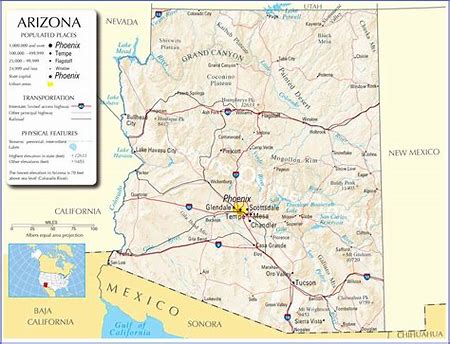
Usually, district court nominees don’t attract as much controversy as those appellate picks, particularly when the nominee has support from home state senators from both parties. However, when it comes to Michael Liburdi, the support for his nomination is actually hurting home state senator Kyrsten Sinema, creating an interesting reversal of the usual dynamic.
Background
Michael Thomas Liburdi Jr. was born in Scranton, Pennsylvania in 1977. Liburdi attended Arizona State University, graduating summa cum laude in 1998.[1] After graduation, Liburdi spent a year in working as a legislative assistant at DeMenna and Associates.[2]
In 1999, Liburdi matriculated at Arizona State College of Law, graduating in 2002.[3] He then clerked for Justice Ruth McGregor on the Arizona Supreme Court. Following his clerkship, Liburdi joined the Phoenix Office of Perkins Coie as an associate.[4] He stayed until 2011 (barring a year long stint in 2008 at the Federal Election Commission).
In 2011, Liburdi joined Snell & Wilmer LLP as an Associate and became a Partner in 2014.[5] After the election of Republican Doug Ducey to the Arizona Governorship, Liburdi joined his office as his General Counsel.[6] Liburdi stayed in that capacity until 2018, when he left to join Greenberg Taurig LLP as a Shareholder.
History of the Seat
Liburdi has been nominated to the U.S. District Court for the District of Arizona, to a seat vacated on July 31, 2018, by Judge David Campbell’s move to senior status. Liburdi had broached his interest in a judicial appointment in late 2016 to senate staff and in August 2018 to the Department of Justice.[7] He interviewed with the White House in September 2018 and was nominated in January 2019.
Political Activity & Memberships
Liburdi has been particularly active in the Arizona Republican Party, serving as the Campaign Counsel for Gov. Doug Ducey, Secretary of State Michele Reagan, Sen. Martha McSally, former Sen. Jeff Flake, Rep. Paul Gosar, and Congressional candidate Wendy Rogers, among others.[8] He was also legal counsel for the House and Senate Victory Funds in Arizona in the 2012 election.[9]
In 2012, Liburdi led the assignment of poll watchers for the Arizona Republican Party, coordinating volunteers trained by the voter fraud watchgroup Verify the Vote AZ, which has received criticism for seeking to suppress the votes of minorities.[16]
Liburdi has been a member of the the Federalist Society for Law and Public Policy Studies (a conservative legal society that has produced many Trump judicial nominees) since 2005.[10]
Legal Experience
Liburdi has developed a career as a conservative attorney, particularly focusing on the area of election law. He has also gained experience working as Counsel for Governor Doug Ducey.
Private Practice
Throughout his career, Liburdi has built a practice in election law, representing various organizations in lawsuits around electioneering, referendum, and voting. Early in his career, for example, Liburdi represented the Clean Elections Institute in successfully challenging a referendum that sought to end Arizona’s public financing of campaigns.[11] Liburdi also represented Arizona Together in unsuccessfully challenging a ballot measure that sought to ban same-sex marriage in Arizona.[12]
On the flip side, Liburdi served as lead plaintiff’s counsel in challenging Arizona’s Independent Redistricting Commission legislative plan, arguing that the Commission had unconstitutionally packed Republican voters.[13] Liburdi lost the case, and the Supreme Court affirmed.[14] In another case, Liburdi sought unsuccessfully to block provisional ballots from a heavily latino area of Cochise County, stating that the ballots in question were not sealed.[15]
Governor’s General Counsel
From 2015 to 2018, Liburdi worked for Gov. Ducey as his Chief Counsel, assisting him on judicial nominations, drafting executive orders, and leading efforts to manage and fight litigation against the Governor’s office. For example, Liburdi defended a lawsuit contending that a school finding settlement negotiated by Ducey violated federal law.[18] Liburdi also advised on the appointment of three conservatives to the Arizona Supreme Court: Justices Clint Bolick, Andrew Gould, and John Lopez.
Overall Assessment
Arizona Sen. Kyrsten Sinema has already drawn sharp criticism for returning a blue slip on and supporting Liburdi. Looking at his record overall, one can see both where this criticism comes from, as well as why Sinema may have returned the blue slip.
Looking at the positions of the opposition, Liburdi has had a strongly partisan career. He has worked and volunteered solely for Republicans, and, while working a Ducey’s counsel, has supported a strongly conservative administration. Furthermore, Liburdi’s work challenging Arizona’s Independent Commission drawn maps and seeking to prevent the counting of votes from overwhelmingly Latino precincts may also be sources of criticism.
On the flip side, Liburdi is obviously a talented attorney. Furthermore, not all of his work has been on behalf of conservative groups. In 2006, Liburdi notably fought the ballot initiative seeking to ban same-sex marriage, seeking to have it thrown off the ballot. He has done the same for initiatives challenging Arizona’s public financing system. These decisions suggest that Liburdi is willing to advocate for legal positions that may run contrary to conservative politics.
Overall, with Sinema’s support, it is likely that Liburdi will be confirmed in due course, even with significant opposition from other Democrats.
[1] Sen. Comm. on the Judiciary, 115th Cong., Michael T. Liburdi: Questionnaire for Judicial Nominees 1.
[2] See id. at 2.
[3] See id. at 1.
[4] See id.
[5] See id. at 2.
[6] See id.
[7] See id. At 53.
[8] Id. at 28-29.
[9] Id. at 29.
[10] See id. at 8.
[11] See Clean Elections Inst. Inc. v. Brewer, 209 Arix. 241 (2004).
[12] See Arizona Together v. Brewer, 214 Ariz. 118 (2006).
[13] Harris v. Arizona Ind. Redistricting Comm’n, 993 F. Supp. 2d 1042 (D. Ariz. 2014).
[14] See Harris v. Arizona Ind. Redistricing Comm’n, 136 S. Ct. 1301 (2016).
[15] Ryan J. Reilly, Arizona Republicans Sue to Block Ballots In Latino Precinct, Talking Points Memo, Nov. 13, 2012.
[16] See Evan Wyloge, Arizona Voter Fraud Group Preps Election Day Pounce, The Arizona Capitol Times, Nov. 2, 2012.
[17] See id. at 14.
[18] See Bob Christie, Judge: Land Trust Use to Fund Arizona Schools is Illegal, The Today File, Mar. 27, 2018.




